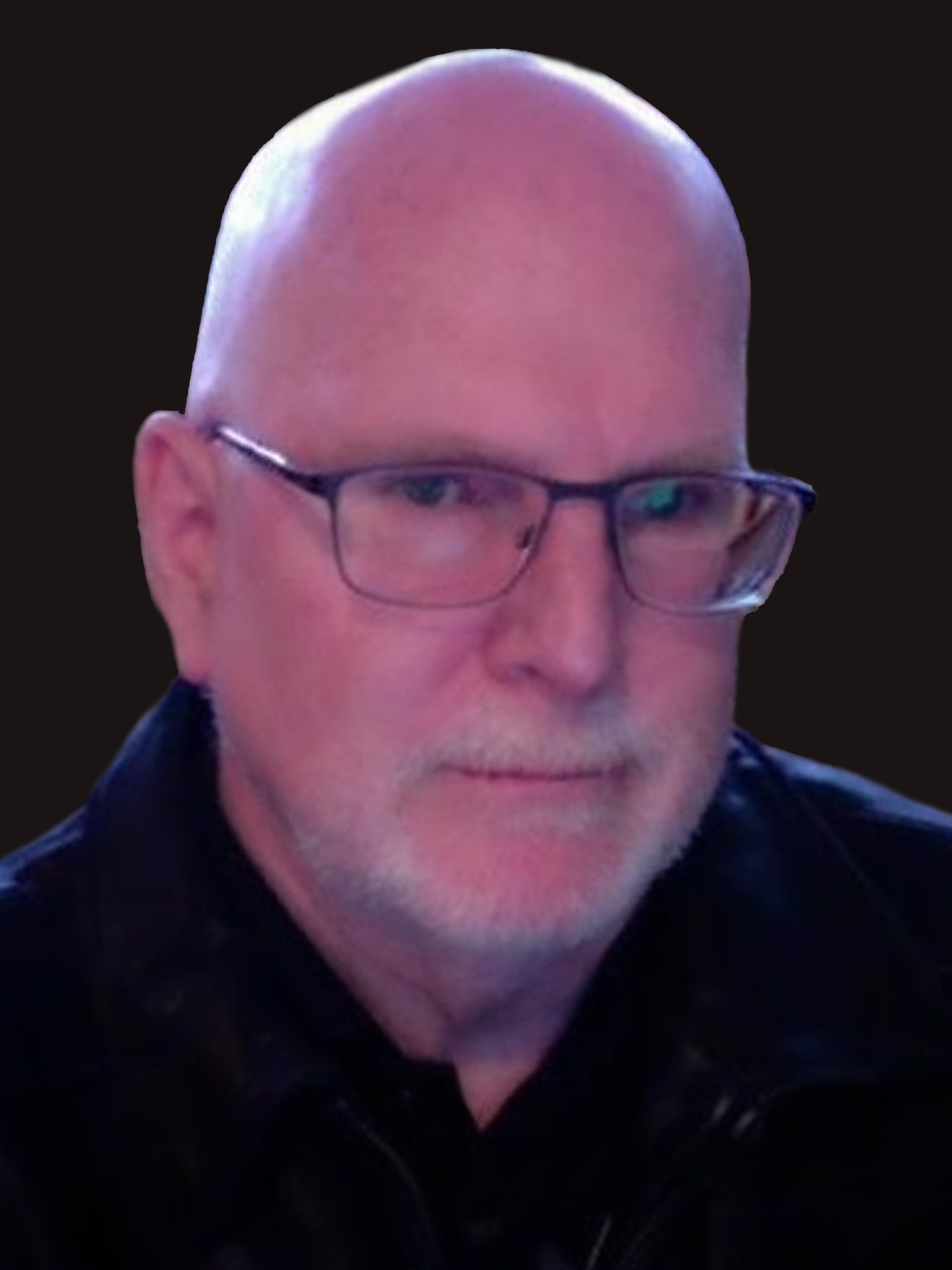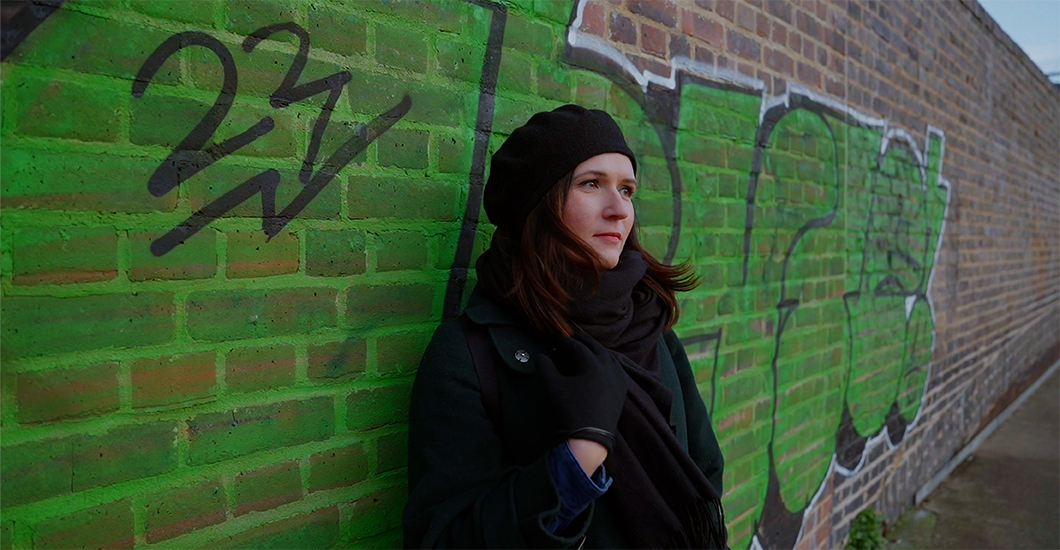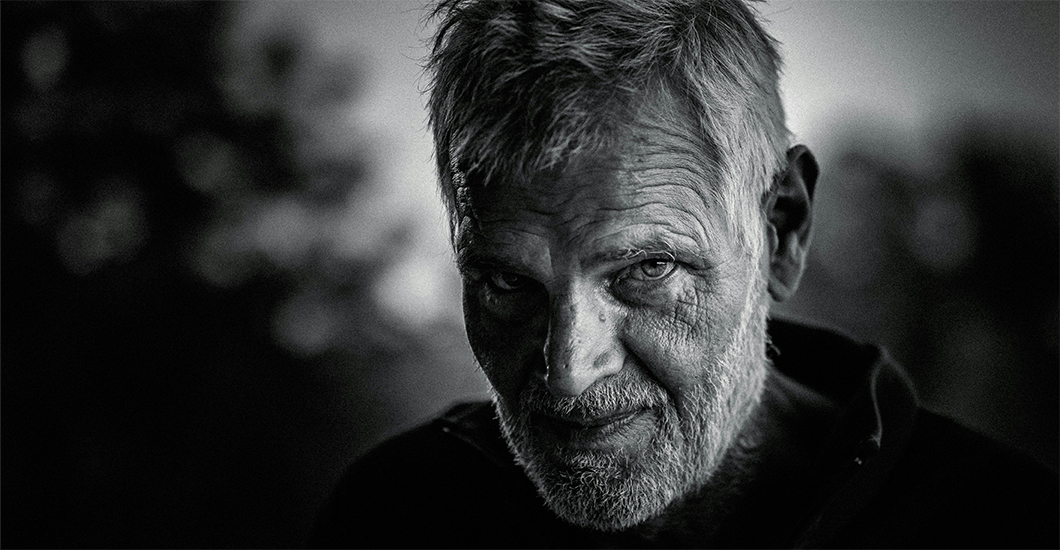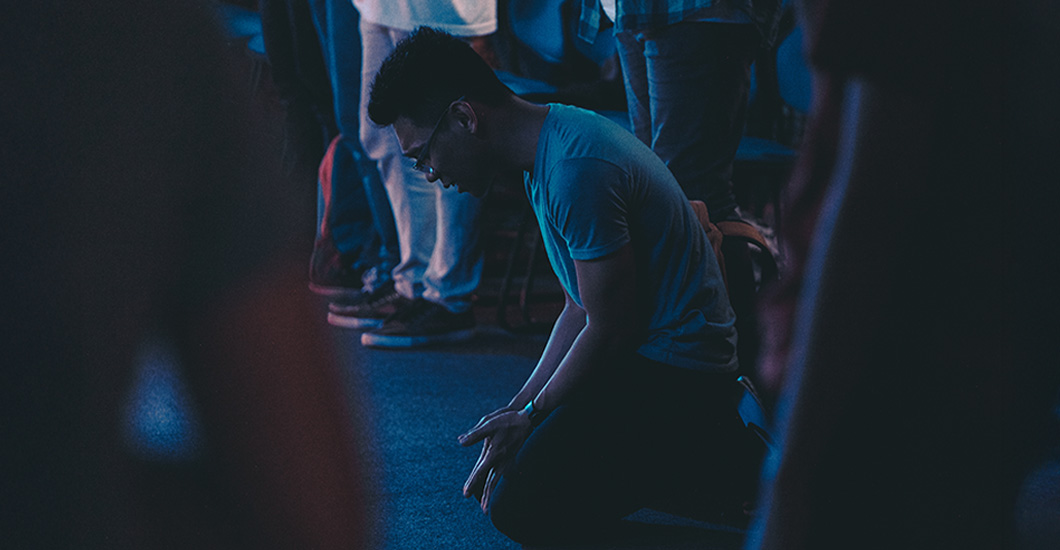Trending Articles
The Power of Now
What’s your most memorable moment?
Ever wondered what made it so rich and vivid?
Down Memory Lane
On the spur of the moment, I recently decided to visit a good priest friend of mine. My friend is getting on in age and it is difficult to know just how much time he has left. Lately, I have been thinking more about time; for we have been friends for over 30 years, and I realize how many wonderful moments we shared that have since drifted from my memory, some of which I can recover if I concentrate—or if something suddenly brings it to mind. These memories are of the many times I visited him over the years in the various parishes to which he was assigned.
What strikes me about these memories is precisely how much they leave out, how much has been forgotten. There is tremendous wealth in the present moment which quickly drifts into the past. After a while, most of these moments are simply lost to memory. But remembering those moments allows us to become consciously aware of what we had only subconsciously sensed in the present moment—a wealth, a sense of blessing, a richness that we would like to recover.
Time is short, and so I decided to drive up to see him. I thought to myself that this night would also be a moment filled with hidden riches that would one day be a distant memory. A large part of that present moment, when past, will be lost. What is retained will reveal something that was hidden when that moment was a “now,” like a hidden treasure in a field (Matthew 13: 44-46).
Center of Life
What makes these moments with my friend so memorable, I wondered to myself? What is it that gives them wealth? That is not difficult for me to answer. It is that which binds our friendship. Generally, friendships are based on common qualities and interests. Some common interests and characteristics are trivial, and so the friendship based on them is trivial. But our friendship is not trivial, so what non-triviality do we have in common? The answer is our love for Christ. He is at the center. What we have in common is our love for the Catholic faith, for the Mass, for Confession, our love for the theological unfolding of that faith. When we are together, we spend a great deal of time discussing theological ideas, the implications of certain theological insights, homilies, great books, and current issues— political or otherwise—in light of the principles of the faith. All of it stems from what we love most, which is Christ.
And who is Christ? He is eternity joined to time. As Boethius defined it, eternity is the “whole, simultaneous, and perfect possession of interminable life.” God is eternal; we are not, for we do not possess the temporal moments of our life perfectly and simultaneously, but imperfectly, partially, and sequentially. And so, life in time is very much characterized by imperfection and dissatisfaction. The heart desires to possess the whole perfectly, the perfect possession of our own life and interminable (eternal) life. In short, we desire eternity; we desire God. Hence, what is written in Ecclesiastes is true: “All is vanity of vanities, a chasing after wind” (Ecclesiastes 1:2). Life, here and now, lived out in time cannot give us what we desire. But when eternity entered into time, the eternal Word became flesh (John 1:14). As a result, time is joined to and contained by something that can give us what the heart desires, namely eternity.
Eternity in the Present
We desire the Word in Whom we see the Father and in Whom we begin to understand the mystery of ourselves, gathering the fragments of our life into a single whole. We desire Christ. When our friendships and our day-to-day life are centered on Him, rooted in Him, focused on Him, time becomes incalculably meaningful. The meaning contained in the present moment overflows or exceeds what the limited present can contain, and memory gives us a glimpse of it, a glimpse of something we knew and experienced at the time but were not fully and consciously able to articulate. It was an unconscious or subconscious possession, because in joining Himself to a human nature, the Son as it were joined Himself to every man. What we desire is within us, for “the kingdom of God is within you” (Luke 17: 21), and it is outside of us, joined to every moment of time.
To discover Christ is to discover the mystery of eternity in the present moment. To lose touch with Christ is to lose touch with the richness of the present moment, and that loss gives rise to an anxious desire for rest. We begin to live out of the past, often out of past resentments, and without living fully in the present, we live for a future that does not yet exist and that may never exist. We may die a year after we have achieved everything we set out to achieve, die perhaps in the living room of the beautiful estate we built for ourselves with savings accumulated for our retirement, which was cut short by contingencies we were unable to control, such as cancer, or a vehicle accident, or a brain aneurysm. Because we did not live for Christ we failed to discover the beauty and richness of the present moment. Instead we looked for beauty and wealth in what did not yet exist, namely the future. To fail to find Christ is to fail. A failed life is a wasted life. Stop and smell the roses is a tired cliche, but the living rose proclaims Christ crowned with thorns, and its perfume announces the fragrant beauty that a life becomes when His blood runs through our veins.
Dear Lord, I thank you for this present moment and for Your presence in my heart. Help me to leave the past into Your mercy, and the future into Your hands. May I strive to find the beauty of living this moment for You. Amen.

Deacon Doug McManaman is a retired teacher of religion and philosophy in Southern Ontario. He lectures on Catholic education at Niagara University. His courageous and selfless ministry as a deacon is mainly to those who suffer from mental illness.
Related Articles
From being a healthy Uni-student to a paraplegic, I refused to be confined to a wheelchair… In the initial years of University, I slipped a disc. Doctors assured me that being young and active, physiotherapy, and exercises could make me better, but despite all effort, I was in pain every day. I had acute episodes every few months, which kept me in bed for weeks and led to repeated hospital visits. Nevertheless, I held on to hope, until I slipped a second disc. That's when I realized my life had changed. Angry at God! I was born in Poland. My mom teaches theology, so I was brought up in the Catholic faith. Even when I moved to Scotland for University and then to England, I held onto it dearly, maybe not in a do-or-die manner, but it was always there. The initial phase of moving to a new country wasn’t easy. My home had been a furnace, with my parents fighting among themselves most of the time, so I had practically run away to this alien land. Leaving my difficult childhood behind, I wanted to enjoy my youth. Now, this pain was making it difficult for me to hold down jobs and keep myself financially balanced. I was angry at God. Yet, He wasn’t willing to let me go. Trapped at home in acute pain, I resorted to the only available pastime—my mother’s collection of religious books. Slowly, the retreats I attended and the books I read led me to realize that despite my distrust, God really wanted my relationship with Him to be strengthened. But I was also not totally over the anger that He wasn’t healing me yet. Eventually, I came to believe God was angry at me and didn’t want to heal me so I thought maybe I could trick him. I started looking for a holy priest with good ‘statistics’ for healing so that I could get healed when God was busy doing other things. Needless to say, that never happened. A Twist in My Journey One similar day in a prayer group, I was in so much pain. Fearing an acute episode, I was planning to leave when one of the members there asked if there was something I would like them to pray for. I was having some trouble at work, so I said yes. As they were praying, one of the men asked if there was some physical illness that I needed praying over. They were way down on my ‘healing rating’ list, so I didn’t trust that I would receive any relief, but I said ‘Yes’ anyway. They prayed and my pain was gone. I returned home, and it was still gone. I started jumping and twisting and moving around, and I was still okay. But nobody believed me when I told them I was healed. So, I stopped telling people; instead, I went to Medjugorje to thank Our Lady. There, I had an encounter with a man who was doing Reiki and wanted to pray over me. I refused, but before leaving he gave me a goodbye hug which left me worried because I recalled his words that his touch has power. I allowed fear to take over and falsely believed this evil’s touch was stronger than God. I woke up the next morning in excruciating pain, unable to walk. After four months of relief, my pain returned so acutely that I thought I wouldn’t even be able to make it back to the UK. When I returned, I found that my discs were touching the nerves, causing even more drastic pain for months. After six or seven months, the doctors decided that they needed to do the risky procedure on my spine that they had been keeping off for a long time. The surgery damaged a nerve in my leg, and my left leg was paralyzed knee-down. A new journey began there and then, a different one. I Know You Can Do it The very first time I arrived home in a wheelchair, my parents were terrified, but I was filled with joy. I loved all the technological stuff…every single time someone pressed a button on my wheelchair, I was excited like a kid. It was over the Christmas period, when my paralysis started regressing that I realized the extent of damage to my nerves. I was admitted to a hospital in Poland for a while. I didn't know how I was going to live. I was just praying to God that I needed another healing: “I need to find you again because I know you can do it.” So, I found a healing service and was convinced that I would be healed. A Moment You Don’t Wanna Miss It was Saturday and my father had initially not wanted to go. I just told him: “You don't want to miss out when your daughter is healed.” The original schedule had a Mass, followed by the healing service with Adoration. But when we arrived, the priest said they had to change the plan as the team that was meant to lead the healing service was not there. I remember thinking I don’t need any team: “I only need Jesus.” When the Mass started, I did not hear a single word. We were sitting on the side where there was a Divine Mercy picture. I looked at Jesus like I had never seen Him before. It was a stunning image. He looked so beautiful! I never saw that picture anywhere after that. All through Mass, the Holy Spirit was enveloping my soul. I was simply saying in my head ‘Thank you’ even though I didn’t know what I was thankful for. I wasn’t able to ask for healing, and it was frustrating because I needed healing. When adoration started I asked my mom to take me to the front, as close to Jesus as possible. There, seated up front, I felt someone touching, and massaging my back. I was getting so warm and cozy that I felt like I would fall asleep. So, I decided to walk back to the bench, forgetting that I could not ‘walk.’ I just walked back and my mom ran after me with my crutches, praising God, saying: “You are walking, you are walking.” I was healed, by Jesus in the Blessed Sacrament. As soon as I sat down, I heard a voice saying: “Your faith has healed you.” In my mind, I saw the image of the woman touching the cloak of Jesus when He was passing. Her story reminds me of mine. Nothing was helping until I reached this point where I started trusting Jesus. The healing came when I accepted Him and told Him: “You are all I need.” My left leg had lost all its muscles and even that grew back overnight. It was very significant because the doctors were measuring it before, and they found an astounding, unexplainable change. Shouting it Out This time around when I received the healing, I wanted to share it with everyone. I wasn't embarrassed anymore. I wanted everyone to know how amazing God is and how much He loves all of us. I'm no one special and I haven't done anything special to receive this healing. Being healed also doesn't mean that my life became super-comfortable overnight. There are still difficulties, but they are much lighter. I take them to the Eucharistic Adoration and He gives me solutions, or ideas on how I can deal with them, as well as the assurance and trust that He will deal with them.
By: Ania Graglewska
MoreEver experienced what it’s like to be in adoration? Colette’s beautiful account could be life-changing for you. I remember that as a child, I used to think that speaking to Jesus in the Blessed Sacrament was either the most incredible or crazy notion. But that was long before I encountered Him. Years from that initial introduction, I now have a treasure trove of little and big experiences that hold me close to the Eucharistic Heart of Jesus, leading me ever closer, one step at a time…The journey is still on. Once a month, the parish I attended then held an all-night vigil which would start with the celebration of the Eucharist, followed by adoration throughout the night, broken up into hours. Every hour began with some prayer, a Scripture reading, and praise; I recall, during the initial months, the first stirrings of that feeling of being so close to Jesus. Those nights were so focused on the person of Jesus and there, I learnt to speak to the Blessed Sacrament, as if Jesus Himself was standing there. Later on, at a retreat for young adults, I came upon silent Eucharistic Adoration, which felt strange to me at first. There was nobody leading, and no singing. I enjoy singing in Adoration and I've always enjoyed people leading us in prayer. But this idea that I could sit and just be, that was new…At the retreat, there was a very spiritual Jesuit priest who would start adoration with: “Be still and know that I am God.” And that was the invitation. Me and You, Jesus I remember one specific incident that brought a profound realization of this stillness to me. I was at Adoration that day, my designated time had come to an end and the person who was supposed to be taking over from me hadn't arrived. While I was waiting, I had a distinct impression from the Lord: “That person is not here but you are,” so I decided to just breathe. They'd be here any minute I thought, so I focused on the presence of Jesus and was simply breathing. I realized, however, that my mind was leaving the building, getting busy with other cares, whereas my body was still there with Jesus. Everything that was going on in my mind suddenly camped. It was just a sudden moment, almost over before I realized what was happening. A sudden moment of stillness and peace. All the noises outside the chapel felt like music, and I thought: “My goodness, Lord, thank You…Is this what adoration is supposed to do? Lead me into a space where it's just me and You?” This made a deep and lasting impression on me, that the Eucharist is not something, it is Someone. In fact, it's not just someone, it is Jesus Himself. Priceless Gift I think our perception of His presence and gaze plays a big role. The thought of the eye of God fixed on us may feel very scary. But in reality, this is a gaze of compassion. I experience that full-on in adoration. There is no judgment, only compassion. I'm someone who is very quick to judge myself, but in that gaze of compassion from the Eucharist, I'm invited to be less judgmental of myself because God is less judgmental. I suppose I'm growing into this in a lifetime of continuous exposure to the exposed Eucharist. Eucharistic adoration has thus become for me a school of presence. Jesus is 100% present everywhere we go, but it's when I sit in His Eucharistic presence that I'm alerted to my own presence and His. There, His presence meets mine in a very intentional way. This school of presence has been an education in terms of how to approach others too. When I'm on duty in the hospital or the hospice and I'm meeting someone very ill, being a non-anxious presence to them is the only thing I can offer them. I learn this from His presence in Adoration. Jesus in me helps me be present to them with no agenda–simply to ‘be’ with the person, in their space. This has been a great gift to me because it frees me to almost be the Lord's presence with others and to allow the Lord to minister to them through me. There is no limit to the gift of peace that He gives. Grace happens when I stop and let His peace wash over me. I feel that in Eucharistic adoration, when I stop being so busy. I think that in my lifetime of learning so far, that's the invitation: “Stop being so busy and simply be, and let Me do the rest.”
By: Colette Furlong
MoreAdversities mark our lives on earth, but why would God allow that? About two years ago, I fronted up for my yearly blood test and when the results came back, I was told I had ‘Myasthenia Gravis.’ Fancy name! But neither I nor any of my friends or family had ever heard of it. I imagined all the possible terrors that may be ahead for me. Having lived, at the time of diagnosis, a total of 86 years, I had incurred many shocks. Rearing six boys was full of challenges, and these continued as I watched them build their families. I never gave into despair; the grace and power of the Holy Spirit always gave me the strength and trust I needed. I eventually depended on Mr. Google to learn more about ‘Myasthenia Gravis’ and after reading pages of what may happen, I realized I just had to trust my doctor to help me through. He, in turn, put me in the hands of a specialist. I went through a rocky road with newer specialists, changing tablets, more trips to hospital, and eventually having to give up my license. How could I survive? I was the one who drove friends to different events. After much discussion with my doctor and family, I finally realized that it was time to put my name down for acceptance into a nursing home. I chose Loreto Nursing Home in Townsville because I would have opportunities to nurture my faith. I was faced with many opinions and advices—all legitimate, but I prayed for guidance from the Holy Spirit. I was accepted into Loreto Home and made up my mind to accept what was on offer. It was there that I met Felicity. A Near-Death Experience A few years ago, there was a 100-year-flood in Townsville and a reasonably new suburb went under water with most houses inundated. Felicity’s house, like all others in the suburb, was low set, so she had about 4 feet of water throughout the entire house. As the soldiers from the Army Base in Townsville took up the task of a massive cleanup, all the residents had to find alternate accommodation to rent. She stayed at three different rental properties during the next six months, simultaneously helping the soldiers and working towards making her home livable again. One day, she began to feel unwell and her son, Brad, called the doctor on call, who advised on taking her to the hospital if things did not get better. The next morning, Brad found her on the floor with a swollen face and immediately called the ambulance. After many tests, she was diagnosed with ‘Encephalitis,’ ‘Melioidosis’ and ‘Ischemic attack,’ and remained unconscious for weeks. The contaminated flood waters she had waded through six months ago, it turns out, had contributed to an infection of her spinal cord and brain. As she floated in and out of consciousness, Felicity had a near-death experience: “As I was lying unconscious, I felt my soul leaving my body. It floated out and flew up very high to a beautiful spiritual place. I saw two people looking at me. I went towards them. It was my mother and father—they looked so young and were so happy to see me. As they stood aside, I saw something amazing, a stunning face of Light. It was God the Father. I saw people from every race, every nation, walking in pairs, some holding hands…I saw how happy they were to be with God, feeling at home in Heaven. When I woke up, I was so disappointed that I left that beautiful place of peace and love that I believed was Heaven. The priest who was tending to me all throughout my time in hospital said he had never seen anyone react as I did when I woke up.” Adversity into Blessings Felicity says she always had faith, but this experience of imbalance and uncertainty was enough to ask God: “Where are you?” The trauma of the 100-year-flood, the massive clean-up afterwards, the months of setting up her home while living in rental properties, even the nine months in hospital of which she had little memory of could have been the death of her faith. But she tells me with conviction: “My faith is stronger than ever.” She recalls that it was her faith that helped her deal with what she went through: “I believe I survived and came back, to see my beautiful granddaughter go to a Catholic High School and finish Year Twelve. She is going on to University!” Faith believes all things, heals all things, and faith never ends. It is in Felicity that I found the answer to a common question we all may face at some point in life: “Why does God allow bad things to happen?” I’d say that God gives us freewill. Men can initiate bad events, do evil things, but we can also call on God to change the situation, to change the hearts of men. Truth is, in the fullness of grace, He can bring good even out of adversity. Just as He led me to the nursing home to meet Felicity and hear her beautiful story, and just as Felicity found strength in faith as she spent endless months in the hospital, God can change your adversities into goodness too.
By: Ellen Lund
MoreWhen your path is swarming with difficulties, and you’re feeling clueless, what would you do? The summer of 2015 was unforgettable. I was at the lowest point of my life—alone, depressed, and struggling with all my strength to escape a terrible situation. I was mentally and emotionally drained, and felt that my world was going to end. But strangely, miracles unfold when we least expect them. Through a string of unusual incidents, it almost seemed as if God was whispering in my ear that He has got my back. On that particular day, I had gone to bed desperate and broken. Unable to sleep, I was once again pondering the sad state of my life as I clutched my rosary, attempting to pray. In a strange kind of vision or dream, a radiant light began emanating from the rosary on my chest, filling the room with an ethereal golden glow. As it slowly started to spread, I noticed dark, faceless, shadowy figures at the periphery of the glow. They had been closing in on me with unimaginable speed, but the golden light grew brighter and drove them farther away whenever they tried to come close to me. I felt frozen, unable to react to the strangeness of the vision. After a few seconds, the vision suddenly ended, plunging the room into pitch blackness again. Deeply disturbed and afraid to sleep, I turned on the TV. A priest was holding up a Saint Benedict medal* and explaining how it offered a divine protection. As he discussed the symbols and words inscribed on the medal, I glanced down at my rosary—a gift from my grandfather—and saw that the Cross on my rosary had the same medal embedded into it. This triggered an epiphany. Tears started rolling down my cheeks as I realized that God was with me even when I thought my life was crumbling into ruin. A fog of doubt lifted from my mind, and I found solace in the knowledge that I was no longer alone. I had never realized the meaning of the Benedictine medal before, so this newfound belief brought me great comfort, strengthening my faith and hope in God. With immeasurable love and compassion, God was ever-present, ready to rescue me whenever I slipped. It was a comforting thought that embraced my being, filling me with hope and strength. Revamping My Soul This shift in perspective propelled me on a journey of self-discovery and growth. I stopped viewing spirituality as something distant and remote from my everyday life. Instead, I sought to nurture a personal connection with God through prayer, reflection, and acts of kindness, realizing that His presence is not confined to grand gestures but could be felt in the simplest moments of everyday life. A complete transformation did not happen overnight, but I began to notice subtle changes within myself. I’ve grown more patient, learned to let go of stress and worry, and embraced a newfound faith that things will unfold in accordance with God’s will if I place my trust in Him. Moreover, my perception of prayer has shifted, evolving into a meaningful conversation stemming from an understanding that, although His benevolent presence may not be visible, God listens and watches over us. Just as a potter sculpts clay into exquisite art, God can take the most mundane parts of our lives and shape them into the most beautiful forms imaginable. Belief and hope in Him will bring better things into our lives than we could ever accomplish on our own, and enable us to remain strong despite all the challenges that come our way. *Saint Benedict Medals are believed to bring divine protection and blessings to those who wear them. Some people bury them in the foundations of new buildings, while others attach them to rosaries or hang them on their home walls. However, the most common practice is to wear the Saint Benedict medal on the scapular or embed it in a Cross.
By: Annu Plachei
MoreI approached Him for success in my studies, but He didn’t stop there… During my high school years, I experienced a remarkable journey of faith and academic growth. As a devout Catholic, I firmly believed that God's presence was constantly with me, especially when it came to my studies. I remember one particular semester, I was facing a daunting load of exams and assignments. The subjects seemed to pile up, and I felt overwhelmed by the sheer amount of information I needed to grasp. Doubt started to creep into my mind, making me question my abilities. In those moments of uncertainty, I turned to prayer as my source of solace and guidance. Each evening, I would retreat to my room, light a candle, and kneel before my crucifix. I poured my heart out to God, expressing my fears and doubts while asking for strength, wisdom, and clarity in my studies. An Invisible Guide As the weeks went by, I noticed something extraordinary happening. Whenever I encountered a challenging topic or struggled with a difficult concept, I would find unexpected clarity. It was as if a light was being shone upon my path, illuminating the way forward. I would stumble upon helpful resources or passages in books that perfectly explain complex ideas, or receive unexpected support from classmates and teachers. I started to realize that these were not mere coincidences but rather, the signs of God's presence and help in my academic journey. It was as if He was guiding me, gently nudging me towards the right resources, the right people, and the right mindset. As I continued to trust in God's guidance, my confidence grew, and my grades began to improve. I noticed a marked difference in my ability to absorb information and comprehend complex concepts. I was no longer studying alone; I had an unseen companion by my side, guiding me through every challenge and encouraging me to persevere. But it wasn't just about the grades. Through this experience, I learned valuable lessons about faith and trust. I learned that God's help was not limited to spiritual matters but extended to every aspect of our lives, including our studies. I learned that when we turn to God with sincere hearts, He not only hears our prayers but also provides the support we need. Keeping Connected This journey taught me the importance of maintaining a strong connection with God, seeking His guidance, and trusting in His plan. It reminds me that true success is not measured solely by academic achievements but also by the growth of character, resilience, and faith. Looking back, I am grateful for the challenges I faced during that semester, as they deepened my relationship with God and strengthened my conviction in His unfailing assistance. Today, as I continue my academic pursuits, I carry the lessons learned during that time, knowing that God's divine guidance will always be there to lead me on the path to knowledge and fulfillment. In a world where academic pressures can often consume us, it is essential to remember that we are not alone in our journey. As Catholics, we have the privilege of seeking God's guidance and finding solace in His presence all the time. Through this personal story, I hope to inspire others to trust in God's unwavering support, not only in their studies but in every aspect of their lives. May we all find comfort in knowing that God is our ultimate teacher, guiding us toward wisdom, understanding, and unshakeable faith.
By: Delon Rojes
MoreWhat would you do when a stranger knocks at your door? What if the stranger turns out to be a difficult person? He says his name with emphasis, in Spanish, with a certain pride and dignity, so you’ll remember who he is—Jose Luis Sandoval Castro. He ended up on our doorstep at Saint Edward Catholic Church in Stockton, California, on a Sunday evening when we were celebrating our patron feast day. Somebody had dropped him off in our relatively poor, working-class neighborhood. The music and the crowd of people apparently drew him like a magnet to our parish grounds. Unveiling the Truth He was a man of mysterious origins—we did not know how he arrived at the church, let alone who and where his family was. What we did know was that he was 76 years old, bespectacled, dressed in a light-colored, well-worn vest, and was pulling his luggage by hand. He carried a document from the Immigration and Naturalization Service granting him permission to enter the country from Mexico. He had been robbed of his personal documents and carried no other identification with him. We set about exploring and discovering who Jose Luis was, his roots, his relatives, and whether they had any contact with him. He hailed from the town of Los Mochis in the state of Sinaloa, Mexico. Anger, vitriol, and venom spewed from his mouth. He claimed that his relatives had ripped him off and robbed him of his pension in the United States, where he had worked for years, as he went back and forth to Mexico. The relatives we contacted claimed they tried to help him on various occasions, yet he called them thieves. Who were we to believe? All we knew was that we had a wandering, regular drifter from Mexico in our hands, and we could not abandon him nor put the old, infirm man out on the street. Coldly, callously, one relative said: “Let him fend for himself on the streets.” He was a man of bluster, bravado, and gruffness, yet he flashed signs of vulnerability again and again. His eyes would water, and he would almost sob as he told how people had wronged and betrayed him. It seemed like he was all alone, deserted by others. The truth was—it was not easy to help him. He was ornery, stubborn, and proud. The oatmeal was either too chewy or not smooth enough, the coffee was too bitter and not sweet enough. He found fault with everything. He was a man with a gigantic chip on his shoulders, angry and disappointed with life. “People are bad and mean, they’ll hurt you,” he lamented. To that, I retorted that there were ‘Buena gente’ (good people) too. He was in the arena of the world where good and evil intersect, where people of goodness and kindness mixed together, like the wheat and chaff of the Gospel. More than a Welcome No matter his defects, no matter his attitude or his past, we knew we should welcome him and help him as one of the least of the brothers and sisters of Jesus. “When you welcomed the stranger, you welcomed me.” We were ministering to Jesus himself, opening the doors of hospitality to him. Lalo Lopez, one of our parishioners who took him in for a night, introduced him to his family, and took him to his son’s baseball game, observed: “God is testing us to see how good and obedient we are, as His children.” For several days, we put him up in the rectory. He was weak, spitting out phlegm every morning. It was obvious he could no longer roam and drift freely as he was accustomed to doing in his younger days. He had high blood pressure, over 200. On one visit to Stockton, he said he was hit behind the neck near a downtown church. A son in Culiacan, Mexico, said he “engendered me” and that he never really knew him as his dad, for he was never around, always traveling, heading for El Norte. The story of his life began to unfold. He had worked in the fields, harvesting cherries, many years ago. He had also sold ice cream in front of a local church a few years ago. He was, to quote the Bob Dylan classic song, “like one with no direction home, like a complete unknown, like a rolling stone.” As Jesus left the 99 sheep behind to rescue one stray sheep, we turned our attention to this one man, apparently shunned by his own. We welcomed him, housed him, fed him, and befriended him. We came to know his roots and his history, the dignity and sacredness of him as a person, and not just as another throwaway on the streets of the city. His plight was publicized on Facebook by a woman who transmits video messages of missing persons to Mexico. People asked: “How can we help?” One man said: “I’ll pay for his ticket home.” Jose Luis, an illiterate man, rough and unrefined, came to our parish fiesta, and by the grace of God, we tried, in some small way, to emulate the example of Saint Mother Teresa, who welcomed the poor, the lame, the sick, and the outcasts of the world into her circle of love, the banquet of life. In the words of Saint John Paul II, solidarity with others is not a feeling of vague compassion or shallow distress at the misfortunes of others. It is a reminder that we commit to the good of all because we are all responsible for one another.
By: Father Alvaro Delgado
More‘Set a timer for five minutes and thank God for this person.’ I bet you are wondering what on earth I’m talking about. Sometimes, we forget to talk to God about unsettled situations regarding the people God places in our lives. Many times, I forget this. One day, by God’s grace, I chose to do something about the lack of peace in my heart. Several years ago, I was having a difficult time with someone in my life. I’ll skip the details. My problem was that it really bothered me. Have you ever been in a situation like this? I made a decision to talk to a priest about it and went to Confession. After he heard my confession, the priest gave me absolution and my penance. Guess what my penance was? If you said ‘set a timer,’ you are absolutely right! He said: “I want you to spend five minutes thanking God for this person.” Five Minutes Five Minutes? Yikes! Determined, I said to myself, I can do this. I left the Church and went to my car. I set my watch for five minutes, and immediately, I was stuck. Wow, this is really difficult! Slowly, I found little ways to thank God for this person. I checked my watch…ugh, only one minute passed. I continued to pray with all my heart. I want to do this! Again, I began thanking God. As the minutes slowly passed by, it became easier and easier. My five minutes still wasn’t up. Continuing with a renewed sense of determination, I found myself thanking God even for the small difficulties. Inside, my heart was leaping! Praying for this person was really working to change my heart. Why was I so consumed by these difficulties? This is really a good person. Remembering I often remember that day. When I face difficulties with someone, I attempt to apply what I learned from that particular penance. Do you remember the promise made when we recite the Act of Contrition? Those final words before we are absolved from our sins? “… I firmly resolve, with the help of Thy grace, to confess my sins, do penance, and amend my life. Amen.” Now, when I find myself ruminating over some difficulty I’m experiencing with someone, I stop, set a timer, and spend five minutes thanking God for them. It always astounds me how God can turn my heart around in such a short time. Jesus looked at them and said: “For human beings, this is impossible, but for God, all things are possible.” (Matthew 19:26) Thank you, Jesus, for the priest who sometimes gives us a difficult but much-needed penance. Thank you, Jesus, for your healing touch. Thank you, Jesus, for each person You put on our paths. Thank you, Jesus, for loving us so much! Five minutes was and is so little time to have received such a great reward: peace of heart. “Jesus said to them again, ‘Peace be with you!’” (John 20:21)
By: Carol Osburn
MoreI was three when my life turned upside down. Nothing was ever the same again, until I met Him! At three years of age, I had a heavy fever followed by a sudden seizure, after which I started showing signs of facial palsy. By the time I was five, my face became visibly asymmetric. Life ceased to be smooth. As my parents kept reaching out to new hospitals, the pain and mental damage I went through became too much to bear—the repeated questions, the weird looks, the effects and aftereffects of new medications every once in a while… Crawling into a Cocoon I was comfortable alone because, ironically, groups made me feel lonely. I was so scared that the kids next door might cry out loud if I smiled at them. I remember the sweets my dad brought home every night to help me drink the unpleasant medicine, which was overloaded with bitterness. The weekly walks with my mother along the hospital corridors for the physiotherapy sessions were never a weekend trip—every time the vibrations from the stimulator hit my face, tears would start to roll down. There were some beautiful souls who soothed my fears and pain, like my parents, who never gave up on me. They took me to every hospital they possibly could, and we tried a variety of treatments. Later, I would also see them devastated when neurosurgery was suggested. For the first time in my life, I felt that I was being lived out somewhere else. I had to do something. So, in the first semester of college, unable to bear it any longer, I decided to discontinue the medicines. Discovering Beauty After I stopped the meds, I had an adrenaline rush to create something on my own. I welcomed a new life, but I was totally clueless about how I should live it. I started writing more, dreaming more, painting more, and searching for colors in all the grey areas of life. Those were the days I started actively participating in the Jesus Youth Movement (an international Catholic movement approved by the Holy See); I started to slowly learn how to open myself to God’s love and feel loved again… The realization of the importance of the Catholic lifestyle helped me understand my purpose. I started to believe again that I am so much more than everything that has happened to me. Now, when I look back at those moments marked by the closed doors, I can clearly see that within each rejection, the ever-compassionate presence of Jesus accompanied me, enveloping me with His boundless love and understanding. I recognize who I’ve become and the wounds I’ve healed from. Reason to Hold on Our Lord says: “Since you are precious and honored in my sight, and because I love you, I will give people in exchange for you, nations in exchange for your life. Do not be afraid, for I am with you.” (Isaiah 43:4-5) Finding Him in my insecurities was never an easy task. While having plenty of reasons to move farther, it was all about finding that one reason to stay. And it gave me strength and confidence to live through my vulnerabilities. The journey of finding my worth, dignity, and joy in Christ was simply wonderful. We often complain about not finding grace even after the struggles we go through. I think it’s all about seeing through the struggles. Expressing honesty in the slightest adjustment in life without any sort of wrath brings light to your life. It was quite a journey. And while He is still writing my story, I’m learning each day to embrace more, reach out without inhibitions, and make room for little joys in life. My prayers no longer hold the constant need for things I desire. Instead, I’m asking Him to strengthen me to say ‘Amen’ to the changes that keep happening along the way. I’m praying that He heals and transforms me from all the negative influences within and around me. I’m asking Him to revive the parts of me that were lost. I’m thanking Him for everything I’ve been through, all the blessings I receive every minute of the day, and for the person I’ve become. And I’m trying my best to love Him with all my heart and soul.
By: Emilin Mathew
MoreMy husband was given a death sentence; I did not want to live on without him, but his firm convictions surprised me. Five years ago, my world came crashing down when my husband was diagnosed with a terminal disease. The life and the future I envisioned were forever changed in an instant. It was terrifying and confusing; the most hopeless and helpless I’ve ever felt. It was as though I had been plunged into an abyss of constant fear and despair. I had only my faith to cling onto as I faced the darkest days I’ve ever known. Days of caring for my dying husband and days of preparing to face a life completely different than what I had planned. Chris and I had been together since we were teenagers. We were best friends and nearly inseparable. We had been married for over twenty years and were happily raising our four children in what seemed like an idyllic life. Now he was given a death sentence, and I didn’t know how I could live without him. In truth, part of me didn’t want to. One day, in a moment of brokenness, I confided in him that I thought I might die of a broken heart if I had to live without him. His reaction was not as desperate. He sternly but empathetically told me that I had to keep living until God called me home; that I couldn’t wish or waste my life away because his was coming to an end. He confidently assured me that he would be watching over me and our children from the other side of the veil. The Other Side of Grief Chris had an unshakeable faith in God’s love and mercy. Convinced that we wouldn’t be separated forever, he would often recite the phrase: “It’s just for a little while.” This was our constant reminder that no heartache lasts forever—and these words gave me boundless hope. Hope that God will guide us through this, and hope that I will be reunited with Chris in the next life. During these dark days, we clung to Our Lady in the Rosary—a devotion we were already familiar with. The Sorrowful Mysteries were recited more often than not because contemplating the suffering and death of Our Lord brought us closer to Him in our own suffering. The Divine Mercy Chaplet was a new devotion that we added to our daily routine. Like the Rosary, this was a humbling reminder of what Jesus willingly endured for our salvation, and somehow it made the cross we had been given seem less heavy. We began to more clearly see the beauty in suffering and sacrifice. I would mentally repeat the small prayer: “Oh, Most Sacred Heart of Jesus, I place all my trust in You” every hour of the day. It would bring a wave of calm over me whenever I felt a rush of uncertainty or fear. During this time, our prayer life deepened tremendously and gave us hope that Our Lord would be merciful to Chris and our family as we endured this painful journey. Today, it gives me hope that Chris is at peace, watching over and interceding for us from the other side—just as he promised. In these uncertain days of my new life, it’s hope that keeps me going and gives me strength. It has given me immeasurable gratitude for God’s endless love and tender mercy. Hope is a tremendous gift; an inextinguishable interior glow to focus on when we feel broken. Hope calms, hope strengthens, and hope heals. Hope takes courage to hold onto. As Saint John Paul II said: “I plead with you! Never, ever give up on hope. Never doubt, never tire and never become discouraged. Be not afraid.”
By: Mary Therese Emmons
MoreWhatever the situation you are going through, God will make a way where there seems to be no way… Today, my son Aaric brought home his dictation book. He got a red star with a ‘good’ remark. This might not be a big deal for a kindergartener, but for us, it is a celebrated achievement. The first week of school, I got a call from his class teacher. We dreaded this call, my husband and I. As I tried hard to explain his communication skills (or lack thereof) to his teacher, I remember confessing that while I cared for his big sister with special needs, I had fallen into this pattern of doing things without being asked. As she could not utter a single word, I had to guess her needs. The same mode was turned on for Aaric, too, in his early days. Even before he asked for water, I would give it to him. We had a bond that didn’t need words, a language of love, or so I thought. How miserably wrong I was! Not much later, when his little brother Abram turned three months old, I had to take those heavy steps again to see the counselor at school. This time, it was about Aaric’s poor writing skills. His dear class teacher panicked when she saw him drop his pencil on the table and stubbornly fold his hands as if to say: “I won’t write.” We dreaded this, too. His little sister Aksha was an expert at scribbling at the age of two, but Aaric wouldn’t even hold the pencil. He just didn’t fancy it. The First Step After receiving instructions from the counselor, I visited the principal, who insisted that we undergo a thorough assessment if his communication continues to be weak. I couldn’t even think of that back then. For us, he was a miracle baby. After what we went through with our firstborn and three miscarriages, Aaric had defied all odds. He was born full-term, unlike what the doctors had predicted. His vitals were normal at birth. “He’s a big baby!” exclaimed the doctor on bringing him out through a C-section. We watched him grow step by step with almost bated breath, praying nothing would go wrong. Aaric soon reached all his milestones. However, when he was just one year old, my father mentioned that he may need speech therapy. I brushed it off as being too early to diagnose. The truth was, I didn’t have the strength to face another problem. We were already worn out with all that our firstborn was going through. Anna was born preterm at 27 weeks. After many grueling days in the NICU, she was diagnosed with severe brain damage at three months and had epileptic seizures. After all the treatments and medications, our now 9-year-old daughter still battles with cerebral palsy and intellectual disability. She is unable to sit up, walk, or talk. Countless Blessings There’s a limit to holding off the inevitable, so six months ago, we reluctantly took Aaric to get an initial assessment. The ADHD diagnosis was hard. We struggled to accept it, but we still put him through speech therapy. At this point, he was only stuttering a few words. A few days back, I mustered the courage to go to the hospital with Aaric and get a full, thorough assessment. Mild autism was what they said. As we were going through the process of assessment, several questions were asked. To my surprise, my response to most of these questions was: “He wasn’t able to, but now he can.” Praise God! By the power of the Holy Spirit living in him, everything is possible. I believe that praying and blessing him every day before going to school has made a difference. The change was radical when he began to memorize Bible verses. And the beauty is that he recites those verses just when I need them. Indeed, the Word of God is living and active. I believe the transformation is ongoing. Whenever I feel low, God surprises me by making him say a new word. Amid the tantrums he puts up, and when everything seems to crumble down, my little girl, three-year-old Aksha, simply comes up and gives me a hug and a kiss. She really knows how to comfort her mama. I believe that God will surely intervene and heal our eldest daughter, Anna, too, for nothing is impossible for Him. Change is already visible—the number of times she goes into epileptic seizures has gone down tremendously. In our walk of life, things may not be going as expected, but God never leaves nor forsakes us. Just like oxygen that is essential yet invisible, God is ever present and provides the life we need so badly. Let us cling to Him and not doubt whilst in the darkness. May our testimony reveal the truth of how beautiful, wonderful, and loving our God is and how He transforms us to say: “I was …, but now I am ….”
By: Reshma Thomas
MoreLatest Articles
Untold graces and miracles are available to those who practice surrender. I frequently tell my friends about ‘surrender,’ but I receive this question in return: "What does surrendering look like in reality? Am I supposed to ignore the dirty diaper?" The short answer is no! Clean the baby and toss the diaper. Each moment in our lives is a gift from God. Every second is pregnant with possibilities. I can surrender my exhaustion, frustration, joy, or confusion by giving God access. In doing so, I am letting Him determine solutions. I use my freedom to yield to the One with a better plan. How do I know it is better? Because He is the Alpha and the Omega. Although we each have various challenges, the same principles apply. The answer lies in our perspective. Essential to surrender is how we look at any given situation. For instance, I can either go: "Why does the baby always wait until I am ready to leave the house to dirty her diapers?” or instead, be more positive: "That was a close call. I'm happy it happened at home." The latter isn't always my first thought, but I'm making progress. Assuming that various people and situations are specifically intended to frustrate me makes me a target. Pay attention to your perspective. How do you react when something or someone upsets you? Do you feel personally attacked? A positive way to combat that is to flip it around. God has a different plan for me today. Shifting from a target mentality to a recipient of God's grace is all in one’s perspective. Crosses of Our Own Making Being a recipient allows me to receive invitations from God throughout the day. I can freely agree or refuse to be His instrument in any situation. It's letting God's Will be accomplished through my yes. In this, I imitate the Master and grow in virtue. Can you begin to see how surrender works? How much of the anxiety and fear that we experience is self-imposed? I once read that many of the crosses we carry are of our own making. Talk about self-defeating. Thinking that we are obliged to handle everything independently is one way we have unnecessary crosses. Do I see it as another dreary diaper change? Or do I see it as an honor to be able to help my daughter, who cannot help herself? We can practice surrender in small and inconsequential ways, thus growing in holiness. The other segment of surrendering comes from allowing yourself to become a gift from God. Our yes to the Lord through our surrender will enable Him to position us as His instruments in each circumstance. I cannot begin to share how often this happens to me. In giving my yes, I know without a doubt that God will provide. And boy, does He! I am continually surprised by the words coming from my mouth (or written on the page). Repeatedly, it is spot-on. God knows. I do not. The One Who Knows Surrendering frees me from having to solve every problem or carry its weight. I am free to be used by the Almighty in His redemptive work. It allows God to be Father, Savior, Healer, and Sanctifier in and through me. In this way, I become a gift to someone else. It's a win-win! In this little way, I get to participate in his salvific work while He does all the heavy lifting. Those people and that situation are precisely where I am supposed to be because, where I am, there is the Trinity for whom nothing is impossible. "No action, however insignificant, if accepted and performed as coming from God's hand, and in conformity with His will, is anything other than redemptive and a sharing in the great work of salvation begun by Christ's Passion." (He Leadeth Me by Fr. Walter Ciszek) Who is the perfect example of surrender? Our Blessed Mother. She showed us how to surrender in her fiat: “Here am I, the servant of the Lord; let it be with me according to your word.” (Luke 1:38) At the Cross, she was not angry, spiteful, cursing, or asking why, nor was she a passive doormat. Instead, Mary simply stood there, giving her fiat in quiet surrender to God. It is a process of letting go, not into thin air, but into the hands of our Father. When I look back on my own experiences, in those moments of helplessness when life threw me on the asphalt, crushed me on the ice, or shattered the silence as each son shared yet another loss of their little one…Knowing why didn't make it any better. These are the times of surrender and fiats. It is not quitting, rolling over, or giving up. It is handling our problems in confidence and surrendering them to the One who knows the next perfect step. Let it be, Lord, I trust in you. Lord, I give You every moment of my day and access to everything in my life. I welcome Your solutions. I am precisely where You want me to be right now. Pray the Surrender Novena: shalomtidings.org/prayer_categories/novenas-to-our-lord
By: Barbara Lishko
MoreHow can your peace be restored when facing the challenges in life? Sewing is one of my favorite hobbies. I especially enjoy putting together pieces of fabric to create quilt tops. One particular design of mine is called a ‘Crazy Quilt.’ It consists of sewing random scraps, of otherwise useless pieces of fabric, together in such a way that it resembles a mosaic pattern. One day, when working on Crazy Quilt blocks, it occurred to me that each block resembled broken pieces of pottery that, when put together, recreated its own beautiful pattern. It also reminded me that sometimes life can feel like it’s broken into pieces, yet in the Potter’s hands, God can reconstruct those pieces into a new life. God is the source of all peace, but concupiscence caused by original sin can result in God’s peace within us being severed by challenges, temptations, or sin that draw us away from Him. Severed peace makes life feel broken and without purpose. But there is hope, for there’s always hope in God. The Book of Genesis, when read through God’s lens, is clearly the most wonderful love story—our love story with Him. Throughout the creation passages in Scripture, God remarked that everything He created was good. However, on the sixth day, when God created mankind, He said: “It was very good!” Why ‘very good?’ Simply because God created us in His image of goodness so He could love us and be loved in return. A Gentle Reminder All mankind was meant to love completely and live in peace under His protection. However, humanity, through Adam and Eve, chose to challenge God’s goodness, disobeying Him and thereby stepping out of His protection and peace when they chose to believe Satan (the Prince of Lies) over God. Their unfortunate choice, called ‘original sin,’ resulted in the shattering of their peace through the challenges, temptation, and sins that entered outside of God’s protection. His peace had been broken. God is good and He loves us, so He didn’t leave us this way. The Bible’s entire Old Testament details centuries of His efforts to re-establish the relationship He had with us in the Garden of Eden. However, as He was trying to get our attention, the Prince of Lies began to confuse mankind through temptations that led to more sin, pulling humanity further from God. Not to worry though, for Saint Paul reminded us that ‘God is for us’ and that nothing “in all creation, will be able to separate us from the love of God in Christ Jesus our Lord.” (Romans 8:39) How? Because God came for us Himself. “For God so loved the world that He gave His only Son, so that everyone who believes in Him may not perish but may have eternal life.”(John 3:16) It’s unfortunate that we didn’t have a say when the choice was made to commit original sin, but we can reverse the outcome of that sin by choosing to accept and follow Jesus, the Son of God, who is the Prince of Peace(Isaiah 9:6). He wants to lead us back to the Father in Heaven, but often, getting to Him is difficult when we have to step over all the painful broken pieces in our lives. Remember, Scripture is His love story to us. He knows our struggles and assures us that He is our refuge and our strength. Back to the Crazy Quilt It’s amazing when the numerous fabrics, patterns, and colors of a Crazy Quilt that are stitched together somehow blend to create a beautiful quilt top. Scripture reveals that God’s pretty crafty too. Not only is He a potter (Isaiah 64:8), but also He knits (Psalm 139:13), and I like to think He even sews. I wonder if He might see mankind as His own ‘Crazy Quilt’ creation. Although not His original design, we’re a collection of broken pieces all put back together again; He has recreated us, for “If anyone is in Christ, there is a new creation: everything old has passed away; see, everything has become new!”(2 Corinthians 5:17) So, when challenges, temptations, or sin are severing the peace within us, let this inherent thought bring you comfort: “We know that all things work together for good for those who love God, who are called according to His purpose.”(Romans 8:28) What’s that purpose again? God created us in His image of goodness so He could love us and be loved in return. Is there anything better than a warm quilt and a wonderful love story with a happy ending?
By: Teresa Ann Weider
MoreIs it a miracle or a coincidence? I had been working on an article for several days, arduously trying to get my facts right so that the end product I presented was as authentic as possible. Then, all of a sudden, I hit the wrong button, and almost all of what I had written over the past few days disappeared from my entire computer. Nothing worked, no matter how much I tried and how many IT experts I consulted. I had two choices either to try again fruitlessly to retrieve my lost work or to rely on the power of prayer to somehow miraculously retrieve it. Desperate Times, Desperate Measures In the meantime, I felt that I had made a copy of the unfinished work somewhere in the process. So I searched everywhere, in every nook and cranny, in every plastic bag I now use as my case or valise, desperate for a copy of this lost venture, but without success. Trying to replicate all those hours of thought and written words was such a dirge, but I tried to console myself. I desperately prayed to all the Saints of God, particularly one of my favorites, Saint Anthony of Padua, the patron Saint of lost things. My eagerness to finish the article caused me so much anxiety that I even lost sleep over it. I couldn’t content myself until I found the missing half of my article. This continued until the weekend, when I finally decided to dive into a new version of my original idea, forfeiting any hope of finding any semblance of my original thoughts. I sat by my computer, hit my story on the desktop, and thought about where I was to begin revising my original story. Suddenly, I glanced towards my printer, where I spotted a sliver of four pieces of paper protruding from my printer. I ignored it because it must be a remnant of what I was working on earlier. However, before hitting the print button on my latest endeavor, I extracted the A-4 pages. Surprisingly, the article's title matched exactly what I had been desperately searching for over the last week. I couldn’t believe my eyes. How could this be so? An article that I, and every close and known acquaintance of mine, had been unsuccessfully searching for over the past week or so surprisingly appeared on my printer out of the blue. This spiritual experience left an indelible mark on my psyche. I know we leave so many existential happenings to ‘coincidence’. I realized how gracious our God is in allowing His Holy Angels and Saints to come to our aid with the slightest requests.
By: Sean Hampsey
MoreDiscover how a simple snowflake can inspire you. As I drove to the Church, the snow that was supposed to turn to rain continued to fall. Individual flakes hit my windshield, quickly revealing their uniqueness before melting away. By the time I exited the Church after Mass, the snow lightly blanketed the ground. It was beautiful! Dressed in white, the barren farmland and the trees that had shed their colorful leaves no longer looked so desolate and dead. Despite the cold, the snow spread a sense of hope through the air. Of course, my children were hoping the snow would continue so that they would not have to go to school. In my part of the world, snow does bring school-age children such hope and joy. But the feeling I had that day walking out of the church was different. Standing amid the falling flakes, a verse from Psalm 51 came to mind: “Wash me, and I will be whiter than snow.” Therein lies the hope I felt – the knowledge that God loves me despite my weaknesses and sins. I need only to ask for His forgiveness and supernatural help to overcome them. He wants to cover me with His love and mercy like the snow falling gently on the earth. Thriving in Grace I took solace in the gradual covering. Our Lord is patient with us. He does not dump graces on us but allows us time for transformation. He gently leads us on the path of conversion. As I gingerly walked across the parking lot, I appreciated the baby steps we take on our journey that leads us to become the saints God is calling us to be. He delights in even our smallest progress. By afternoon, that which was a field of overturned dirt was now a woolen blanket. How amazing that those little flakes gathered together make such a difference! Such is the transformative power of grace! At every Mass when we receive Holy Communion, our souls are washed clean in the Blood of the Lamb. With each sacramental confession, we are reconciled to God and to one another. The ‘dirt’ from sin that stains our souls is washed away by the graces bestowed in these two powerful yet gentle Sacraments. Then, God sends us out into the world. Each of us, as unique as a snowflake, has our own gifts and talents. We share the Gospel in our little part of the world. Perhaps we feel like we don’t do enough, or aren’t effective enough. We feel as tiny as that snowflake. But consider how God needs each snowflake to do its little part to cover the land. Together, we can change the world! I do not have to do it all by myself. Neither do you. We just need to land where God places us and be the unique person He created us to be, spread God’s love, and make known all the good He does for us. The world will be a brighter place if we do.
By: Kelly Ann Guest
More

















